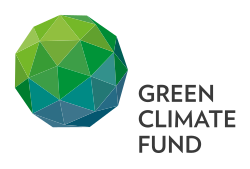Green Climate Fund

- 07 Jul 2025
In News:
- The Green Climate Fund (GCF) has approved over USD 120 million to support climate adaptation initiatives in Ghana, the Maldives, and Mauritania, with technical development by the UN Environment Programme (UNEP).
- The projects aim to build climate resilience among vulnerable populations through nature-based solutions, climate-resilient agriculture, early warning systems, and water security enhancements.
- These initiatives are critical in delivering adaptation finance to regions like Small Island Developing States (SIDS) and the Sahel, addressing some of the most urgent climate vulnerabilities and are expected to benefit over 3.5 million people.
Project Highlights by Country:
Ghana: Agroecological Resilience in Northern Regions
- Total funding: USD 70 million (USD 63 million GCF grant).
- Objective: Strengthen climate resilience in eight districts across North East, Upper East, and Upper West Ghana.
- Key Interventions:
- Improve access to climate data and early warnings.
- Enable dry-season farming via water storage.
- Restore 28,000 hectares of degraded land to improve water retention and soil health.
- Impact:
- Direct benefits for 619,000 people.
- Early warning systems to reach 2.9 million.
- Improved food security for 120,000 individuals.
- Implementing agencies: Ghana EPA and Ghana Meteorological Agency.
Maldives: Early Warning and Risk Reduction in a SIDS
- Total funding: USD 25 million.
- Project Name: Toward Risk-Aware and Climate-Resilient Communities (TRACT).
- Focus: Expand multi-hazard early warning systems and build national capacity under the Early Warnings for All (EW4All) initiative.
- Risks Addressed: Rising sea levels, storm surges, heatwaves, and coastal erosion threatening agriculture, fisheries, and tourism.
- Impact:
- Coverage for over 500,000 people.
- Special emphasis on remote and marginalized communities, including women and children.
Mauritania: Ecosystem Restoration in the Sahel
- Total funding: USD 33 million (USD 30 million GCF grant).
- Objective: Address desertification, drought, and water scarcity across four vulnerable regions.
- Key Activities:
- Build green-grey infrastructure to stabilize sand dunes.
- Improve water access for farming and land rehabilitation.
- Promote climate-resilient agriculture to reduce food imports.
- Impact:
- 85,000 people to benefit directly; 145,000 indirectly.
- 2,100 hectares of land to be protected.
- Supports the Great Green Wall Initiative—Africa’s flagship response to desertification.
Institutional Roles and Significance:
- The UNEP, as a global leader in environmental governance, has played a key role in contextualizing science-based, locally led climate solutions.
- The GCF, under the Paris Agreement framework, remains the largest international climate fund, supporting countries in implementing their Nationally Determined Contributions (NDCs).
